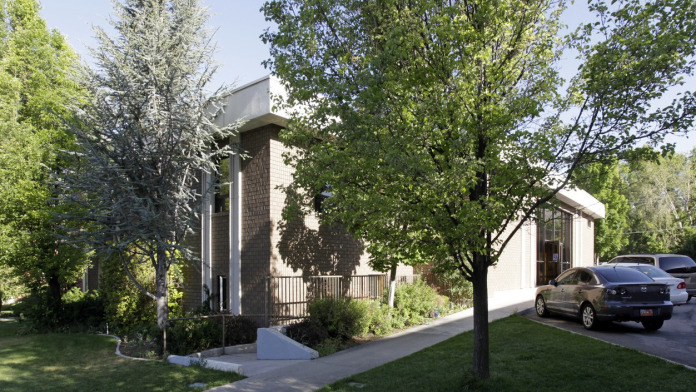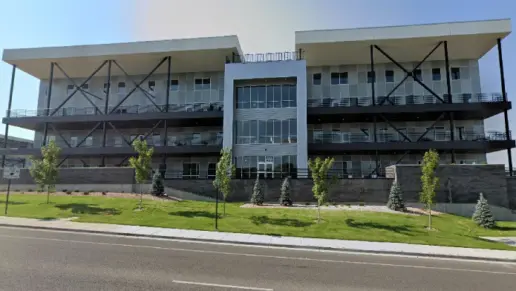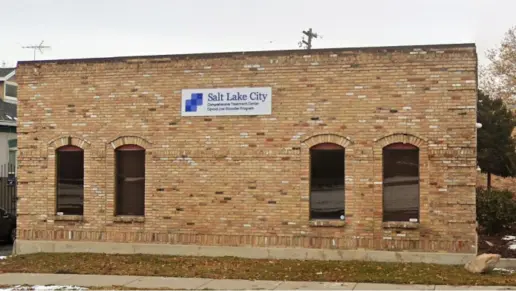If you are concerned about your mental health, then don't waste your money here. These people are not honest and their only goal is to get more funding when they do their jobs poorly. They also give up on patients easily when they find the slightest difficulty on any of them
About House of Hope
Some women have a desire to receive drug or alcohol addiction treatment among other women, so if this sounds like you, House of Hope in Salt Lake City, Utah, is worth considering. You’ll find that this nonprofit drug rehab is committed to operating facilities that help rather than hinder.
Their most popular treatment avenue since 1953 is their residential treatment program. During your stay in this program, you can expect direct staff involvement. Staff will monitor you 24 hours a day, seven days a week.
The home will provide stability, peace, comfort, and security, assisting you in your recovery journey. You should also expect to participate in therapeutic groups. Depending on your assigned residence, you will be among women only or women and their children – and yours.
There is also an outpatient program and day treatment. If you’re struggling with addiction and need intensive care but do not want to stay at the facility, you can enroll in either of these specialized programs.
The outpatient and day treatment programs offer similar services. A day in your life during treatment could include therapy groups, behavioral groups, community groups, skills groups such as how to live sober, and UA screening. Each of these groups will give you the help you need to prioritize recovery and help you build a better life for yourself and your children.
Then, there is also a unique outreach and aftercare program. These programs are for those in residential treatment or outpatient treatment. These programs will help you maintain your sobriety and remain on the path of long term success.
Rehab Score
Gallery

Location
Accepted Insurance
Other Forms of Payment
Medicaid is a state based program that helps lower-income individuals and families pay for healthcare. Medicaid covers addiction treatment so those enrolled can use their coverage to pay for rehab. When a program accepts Medicaid the client often pays very little or nothing out of their own pocket.
Private insurance refers to any kind of healthcare coverage that isn't from the state or federal government. This includes individual and family plans offered by an employer or purchased from the Insurance Marketplace. Every plan will have different requirements and out of pocket costs so be sure to get the full details before you start treatment.
Self-pay involves paying for treatment out of your own pocket. You can use savings or credit, get a personal loan, or receive help from family and friends to fund your treatment. If you don't have insurance or your insurance plan doesn't cover a specific program, self-pay can help ensure you still get the care you need.
Military members, veterans, and eligible dependents have access to specific insurance programs that help them get the care they need. TRICARE and VA insurance can help you access low cost or no cost addiction and mental health treatment. Programs that accept military insurance often have targeted treatment focused on the unique challenges military members, veterans, and their families face.
Addiction Treatments
Levels of Care
Treatments
The goal of treatment for alcoholism is abstinence. Those with poor social support, poor motivation, or psychiatric disorders tend to relapse within a few years of treatment. For these people, success is measured by longer periods of abstinence, reduced use of alcohol, better health, and improved social functioning. Recovery and Maintenance are usually based on 12 step programs and AA meetings.
When you enter a drug rehab in Utah, the process usually involves four stages: treatment initiation, early abstinence, maintaining abstinence, and advanced recovery. Treatment methods can rely on medications, counseling, or both, in either an outpatient or inpatient setting.
Many of those suffering from addiction also suffer from mental or emotional illnesses like schizophrenia, bipolar disorder, depression, or anxiety disorders. Rehab and other substance abuse facilities treating those with a dual diagnosis or co-occurring disorder administer psychiatric treatment to address the person's mental health issue in addition to drug and alcohol rehabilitation.
Opioid rehabs specialize in supporting those recovering from opioid addiction. They treat those suffering from addiction to illegal opioids like heroin, as well as prescription drugs like oxycodone. These centers typically combine both physical as well as mental and emotional support to help stop addiction. Physical support often includes medical detox and subsequent medical support (including medication), and mental support includes in-depth therapy to address the underlying causes of addiction.
Substance rehabs focus on helping individuals recover from substance abuse, including alcohol and drug addiction (both illegal and prescription drugs). They often include the opportunity to engage in both individual as well as group therapy.
Programs


Clinical Services
Group therapy is any therapeutic work that happens in a group (not one-on-one). There are a number of different group therapy modalities, including support groups, experiential therapy, psycho-education, and more. Group therapy involves treatment as well as processing interaction between group members.
Trauma therapy addresses traumatic incidents from a client's past that are likely affecting their present-day experience. Trauma is often one of the primary triggers and potential causes of addiction, and can stem from child sexual abuse, domestic violence, having a parent with a mental illness, losing one or both parents at a young age, teenage or adult sexual assault, or any number of other factors. The purpose of trauma therapy is to allow a patient to process trauma and move through and past it, with the help of trained and compassionate mental health professionals.
Contact Information
857 East 200 South
Salt Lake City, UT 84102







